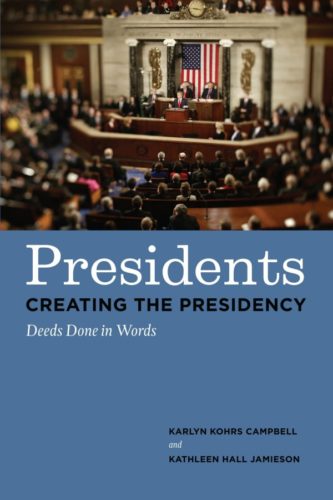Students representing nearly a dozen schools from across the School District of Philadelphia gathered at the University of Pennsylvania’s Hall of Flags Tuesday to present civics projects on topics ranging from global warming to the gun violence plaguing the city. The projects were the culmination of work the high school seniors had done in their
Institutions of Democracy
Student Voices at Philadelphia’s Central High Receives $100,000 Award
The Student Voices program at Philadelphia’s Central High School, led by teachers Stan Levy, William Graham and Michael Horwits, has been recognized with a $100,000 award to further civic engagement among students and communities. Central is one of seven schools nationwide to receive the award. The awards were presented by AARP, which is celebrating its 50th anniversary
Public Sees Different Strengths and Weaknesses in Democratic Contenders
After two months of controversies surrounding statements made by Democratic candidates Illinois Sen. Barack Obama and New York Sen. Hillary Clinton, Sen. Clinton maintains an edge among Democrats on the character traits of experience, strong leadership, patriotism and judgment. Democrats see Sen. Obama as stronger on the traits “trustworthy” and “saying what he/she believes.” Democrats
No Spinning This: FactCheck and FactCheckED Garner Three Webby Awards
Annenberg Political Fact Check (www.FactCheck.org) and its offspring, FactCheckED (www.FactCheckED.org), have been named winners in the 12th Annual Webby Awards competition, it was announced today. FactCheck.org was named the best political website by the Webby judges, and also garnered a People’s Voice Webby, which is awarded based on voting by web users worldwide. FactCheckED received
Student Voices Builds Ongoing Civic Interest, New Study Finds
Despite the popularity of the Internet during this campaign season, television remains the top source among all age groups for obtaining information about the 2008 presidential campaign, according to data released today by the National Annenberg Election Survey of the University of Pennsylvania. Most adults (89%) say they get information about the presidential race from
Student Voices Added to PennCORD Civics Offerings
The Pennsylvania Coalition for Representative Democracy (PennCORD), a coalition of state and national organizations committed to implementing civics education in classrooms and after-school programs in every Pennsylvania community, has added the Annenberg Public Policy Center’s Student Voices program to its offerings. Lead partners in the PennCORD effort are the Office of the Governor of Pennsylvania,
Internet as Political Information Tool Popular, But Television Still Dominates, Annenberg Survey Finds
Despite the popularity of the Internet during this campaign season, television remains the top source among all age groups for obtaining information about the 2008 presidential campaign, according to data released today by the National Annenberg Election Survey of the University of Pennsylvania. Most adults (89%) say they get information about the presidential race
Americans Following Presidential Campaign More Closely Than In 2004, Annenberg Data Show
Americans are following the 2008 presidential campaign more closely than they did in 2004, according to data released today by the National Annenberg Election Survey of the University of Pennsylvania. The level of interest in the campaign has remained high throughout the campaign season among all ideological segments of the population, Democrats, Republicans, and independents

